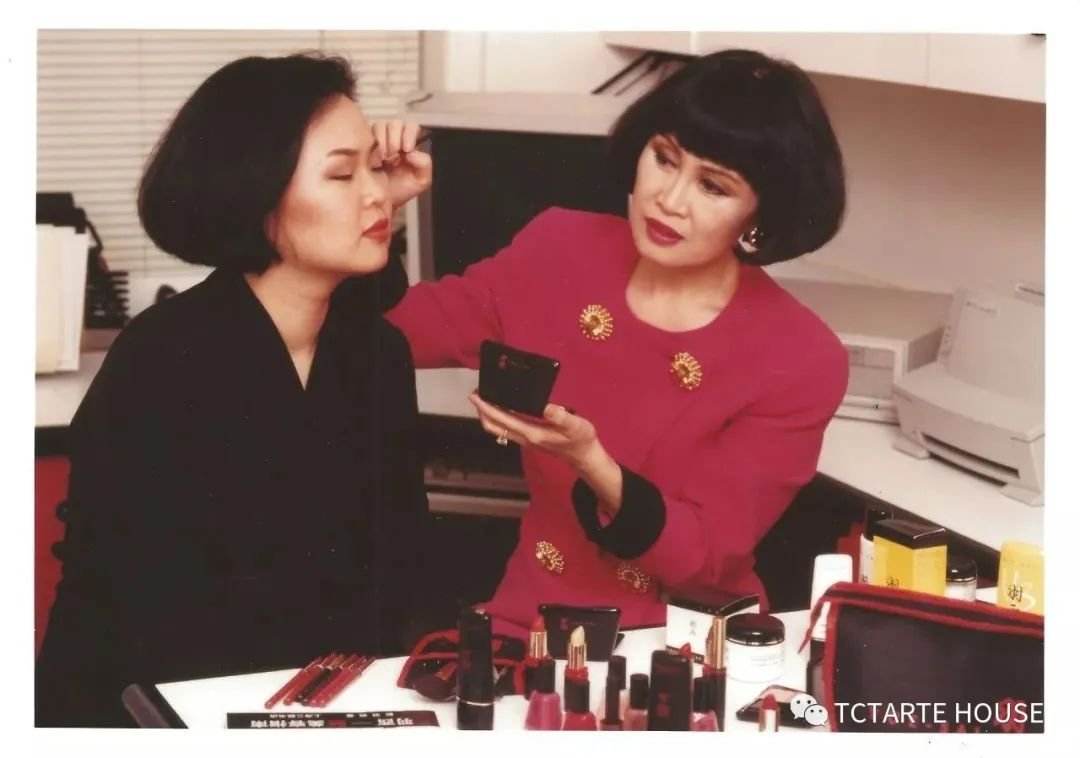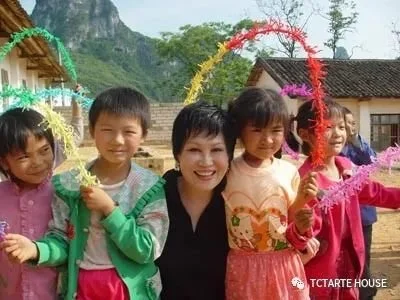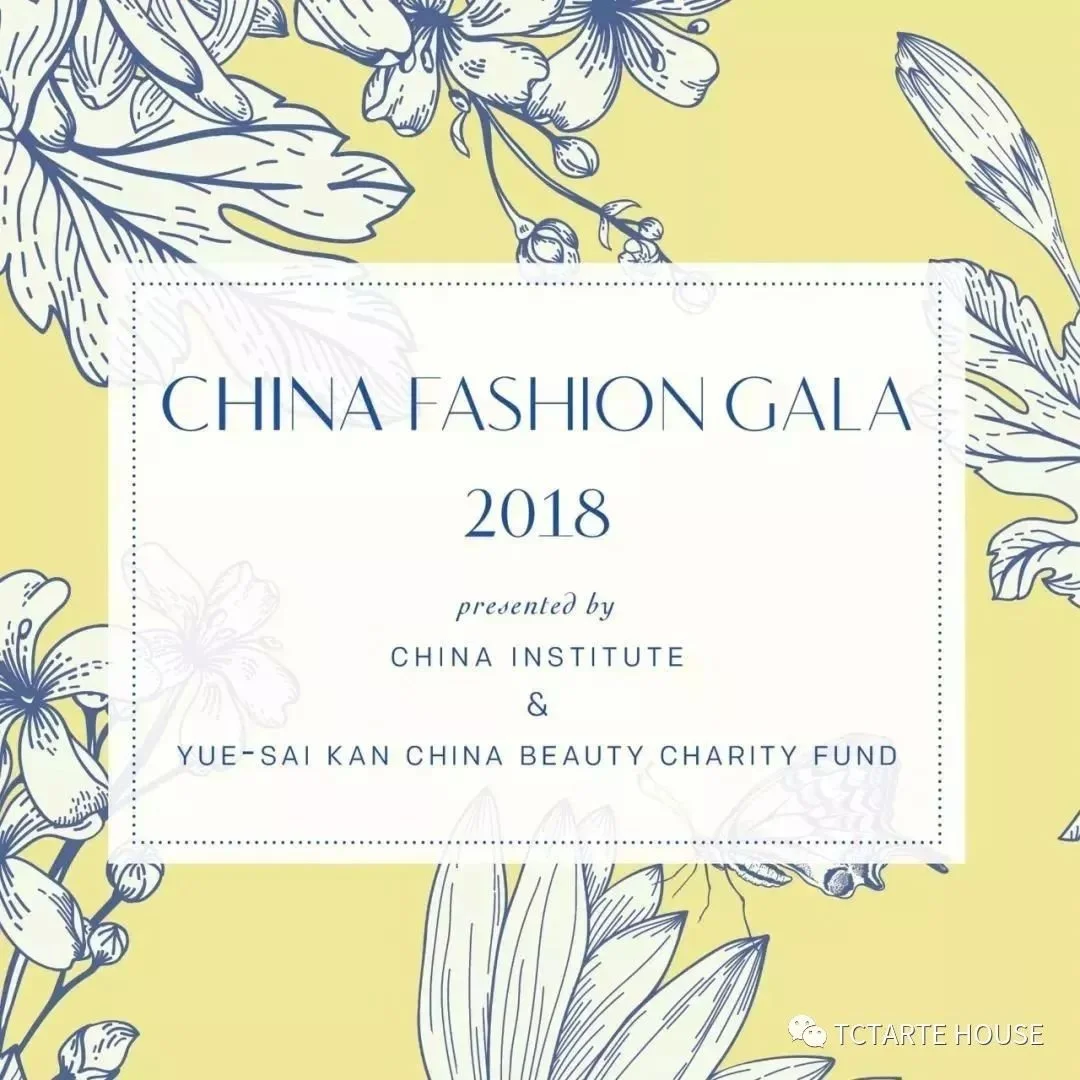Beauty for the world and goodness for the people
“Within you lies the power to attain beauty, health and success. Your choices create your own destiny.”- Yue-Sai Kan
During this Chinese New Year, I traveled to San Francisco and attended a charity event organized by China Institute and Yue-Sai Kan.
As Co-Chair, Yue-Sai worked with the China Institute, a century-old organization dedicated to promoting Chinese culture and fostering a deeper understanding of China, to plan and personally participate in a special event called "Women Who Dared" to honor outstanding Asian women from all walks of life in the United States. Everyone gathered to witness the impressive achievements of these outstanding Asian-American women.
Yue-Sai Kan is an Emmy-winning television host and producer, successful entrepreneur, fashion icon, best-selling author and humanitarian. People magazine called her “the most famous woman in China” and she is the only living Chinese woman who appeared on China’s commemorative stamps.
In China, where I grew up, if you didn’t know Yue-Sai Kan, you didn’t understand the cultural connection between the East and West.
Her show “Looking East” opened the eyes of Westerners and introduced local customs across Asia, including China.
Through her “One World” program, she triggered a spark of inner world longing in the growing international globalization.
It was she who brought color to a time when all Chinese people wore gray. She introduced the concept and gift of beauty, at a time when Chinese women did not carry lipstick in their handbags.
How can we accurately describe Yue-Sai? Beautiful, intelligent, successful, elegant, great humanitarian, entrepreneurial, humble, non-conformist, full of power and grace — a unique wonder of the world.
All along, my understanding of Yue-Sai has remained on the screen. Although I have always admired Yue-Sai as my spiritual mentor, I have never been able to see her in person for various reasons, so that I can personally feel her most authentic charm.
My first encounter with Yue-Sai
In the early 1990s, while in college I had a part-time job as a salesperson for a Japanese skincare brand at a Chinese state-owned department store. Yue-Sai’s skin care and cosmetic product counter were besides where I worked. Her counter was the busiest counter in the store. One day, a middle-aged Shanghainese woman came to the counter and the manager of the Yue-Sai brand, who had a Taiwanese accent, said to her, “You must have been using the pearl cream for a long time.”
The Shanghainese woman replied in surprise, “How did you know?” The manager said, “I can tell just by looking at your skin.” At that time, Chinese women had almost no concept of a skin care routine. The Yue-Sai brand introduced the concept of cleansing, toning, and moisturizing. It also introduced cosmetics, which brought about a revolution in beauty within China.
My Shanghainese colleague Pauline in Vancouver has still kept the “Yue-Sai” makeup brushes she bought at university. This beloved set of brushes is exquisite for its ease of use. It has traveled across the ocean from Shanghai to Vancouver for 30 years, moved several times without being discarded, and it witnessed her marriage and childbirth.
For Pauline, each use is like a conversation, full of emotion, fun, and is seemingly endlessly alive. When I view the Yue-Sai makeup brush in front of me, it seems timeless and still emits the magic and serenity of beauty.
Cultural Bridges - Successful Entrepreneur
Yue-Sai was first known for her TV programs: “Looking East” and “One World”.
In 1992, The New York Times praised Yue-Sai’s series and introduced her makeup brand to America.
These two shows made Yue-Sai a well-known host at the time. In total, over 400 million viewers have watched Yue-Sai’s shows.
While working on TV shows for both China and the United States, Yue-Sai often traveled between the two countries. She found that although China was gradually opening up after the Cultural Revolution, it was still a largely emerging market and there was no brand or company who specialized in developing and designing products specifically for Chinese women.
She immediately thought, “If that’s the case, why don’t I start doing it myself?”
Therefore, Yue-Sai decided to use her own name to create her own cosmetics brand.
Early LOGO of Yue-Sai brand
“If you can change the way you look, you can change anything”
In 1991, Yue-Sai obtained the first U.S sole proprietorship business license in the history of modern China. The license code was 001. The establishment of “Yue-Sai”, not only was the first female entrepreneurial success, but also turned a new page in the history of business within post-revolution China.
The company’s first product was a line of lipsticks in nine modern colors to better match Chinese women’s facial features. This was followed by new skin care products, hoping to bring high quality cosmetics to Chinese women by combining traditional Eastern philosophy with the wisdom of Western technology.
“Beauty does not only belong to a small number of people, nor only in big cities.”
From the beginning of her brand’s establishment, Yue-Sai set the guiding principle as: “Everyone can be beautiful”. She was highly motivated to make the product available to everyone, especially everyday Chinese women.
In less than 3 years, more than 800 counters have been opened in 250 cities in China. The market share of “Yue-Sai" has remained at the top for many years, which is an unbelievable success for a brand built from the ground up.
Yue-Sai’s thoughts and actions have not only encouraged and influenced my generation of female entrepreneurs, but even today’s young people still hold Yue-Sai in high esteem.
My good friend Tiffany, founder of fashion brand Oleada Bags (www.oleada.com), once told me how close she holds Yue-Sai in her heart:
“In an era of female obscurity, she not only dominated her own life but was also the founder of a first-generation consumer brand for women, inspiring three generations of women to evolve in a more confident direction. Women’s entrepreneurship is still a niche group in comparison to men even nowadays, and there are even fewer successful women CEO's.
Today, only 23% of executives are women worldwide, and less than 4% are ethnic minority executives. Only 2.7% of women entrepreneurs can receive venture capital funding. Compared to 50 years ago, it was an admirable and forward-looking achievement to notice the market potential of Chinese female consumers, not to mention being able to thrive on her strengths and succeed ‘against the wind’.
Yue-Sai is a symbol of female power ‘with softness and strength’. Beneath her well behaved, gentle, and reserved exterior, she is full of tenacity in her heart. Even after the hardships of entrepreneurship, she can face life with a positive and optimistic attitude, and pass on that attitude to the younger generation. Beauty comes from within, and the strength comes from the heart, so that you can control your life calmly - something Yue-Sai would aspire to.
In conclusion, she added, “Yue-Sai is supposed to be China’s Coco Chanel, the spark that lights the self-confidence of Chinese women.”
In 2005, in order to promote the "Yue-Sai" brand from the Chinese market to the global international market, L'Oreal Group was selected from the five ‘pursuers' at that time. Yue-Sai sold her brand to the L'Oreal Group, hoping to use the global influence and strong product development capabilities of L'Oreal to promote her cosmetic brand, that originated in China and belongs to the Chinese people, to the world.
Yue-Sai is still an important sub-brand of L'Oreal. The brand packaging remains fashionable and elegant, and has both the "deconstruction" of western cosmetic technology and the ‘traditional nourishment’ with the theme of traditional Chinese precious herbal ingredients, which complement each other and are popular.
Charity is Yue-Sai's life
“If you give to a charity and let everyone know about it, then it is not a charity.”
Yue-Sai once mentioned that the United States taught her a valuable quality: generosity. When I communicate with her via email, whenever I see the quote in her signature, it touches me and reminds me to appreciate my loved ones:
IF WE DONT CARE FOR EACH OTHER, WHO WILL CARE FOR YOU?
Be a rainbow in somebody’s cloud!
In 2005, Yue-Sai built her first school: Hope Primary School
In 2019, Yue-Sai, who has been donating money for Home Education for 15 years, returned to the Hope Primary School she built.
China Institute - Angela's trip to San Francisco
I feel very lucky to be able to attend such a high-end event. In addition to my "idol", Yue-Sai, I also met the famous director Ms. Joan Chen and the famous ballet artist Ms. Tan, Yuanyuan, whom I have also admired for a long time. At the party, I talked with elite female guests from all walks of life in North America about current affairs and our life experiences. I learned and benefited a lot from them and also shared many unique insights of my own.
Living between both China and North America for many years, I’ve realized the subtle differences between Eastern and Western cultures. Traditional Chinese culture places emphasis on reciprocal gratitude, which is colloquially known as ‘pay it back’ in English.
The Chinese way of life and philosophy is about remembering the kindness that was done to you, as the Chinese proverb goes: ‘a drop of water shall be returned with a burst of spring’. This foundational aspect of Chinese culture means that children respect and revere their parents and loved ones for what they did for them, and are expected to pay it back once their parents get old.
On the other hand, the foundation of Western charity is based on a ‘pay it forward’ model - the Chinese interpretation is to ‘pass on the love’.
In the West, charity emphasizes that the purpose of doing good deeds is not to expect anything back in return: if someone helps you on your path then you can do the same to someone along their path.
The forward aspect is that since you were helped, you will go on to help someone less fortunate or younger than you, and then they will do the same in their life. Eastern and Western culture have different a understanding of charity, spirituality, reverence, and respect: which Yue-Sai blended harmoniously together. We can all learn from Yue-Sai’s example of a unified cultures, both serving each other to become whole.
Yue-Sai is repaying the world that has gave her all her success. She blesses the world with her outgoing personality, beauty, and charm and passes on the love to all of those around her.
Partial Image Source:
Yue-sai, "Yue-Sai" brand's Weibo, L'Oréal, sohu
Angela Bi 毕颖
TCT Arte House, Founder
angelabi@tctandco.com
Written on February 28th, 2023






























